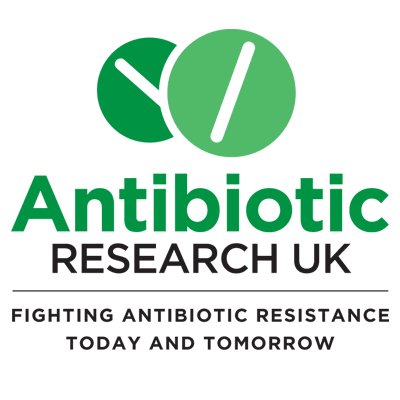First Research Programme Identifies Potential Antibiotic Resistance Breakers
New research shows promising leads to fight antibiotic resistance
Antibiotic Research UK's first research programme finds a number of drugs that can break antibiotic resistance in Gram-negative bacteria.
Key findings include:
- ANTRUK has investigated ways to break resistance to the five main antibiotic classes including our last resort carbapenems and polymyxins
- Over 1500 drugs screened against four species of antibiotic resistant Gram-negative bacteria viz. E coli, K pneumoniae, P aeruginosa and A baumanii -- these bacteria are responsible for sepsis, pneumonia, blood, skin and urinary tract infection and gut infections
- ANTRUK found that some drugs from the pharmacopoeia drug library in combination with antibiotics can break antibiotic resistance, making the antibiotic work again
- Also, a number of antibiotics when used in combination with another antibiotic can break resistance
- All these Antibiotic Resistance Breakers identified are now being progressed to in depth screening
 Antibiotic resistant infections are predicted to lead to 10 million deaths per year globally by 2050 at a cost of up to $100 trillion to the world economy. In the UK at least 5,000 people per year die from resistant infections.
Antibiotic resistant infections are predicted to lead to 10 million deaths per year globally by 2050 at a cost of up to $100 trillion to the world economy. In the UK at least 5,000 people per year die from resistant infections.
12 December 2016: New research by Antibiotic Research UK (ANTRUK), the world's first charity created to develop new antibiotics in the fight against superbugs, has found Antibiotic Resistance Breakers (ARBs) in its first major lab research programme. The research, conducted under contract in the UK, Germany and France is a first step towards the charity's goal of bringing one new antibiotic therapy into clinical use but the early 2020's.
Professor Colin Garner, chief executive of Antibiotic Research UK says: "We see the findings as hugely encouraging, endorsing as they do the ARB concept. The attraction of this approach is that because we are examining existing drugs, then positive findings can be quickly taken into the clinic without expensive safety testing. We have chosen to examine Gram-negative bacteria, which includes ESBL E.coli as well as other bacteria causing blood, urinary tract and lung infections, as these are the most difficult to treat and are where the incidence of resistance is rising. The charity needs to raise £550,000 in 2017 to fund the next phase of its research, where it will progress the leads that it has identified and Christmas would be a good time to help us."
Dr David Brown, chair of the charity's Science Committee says: "These results provide encouragement that we can save some of our most important antibiotics from resistance. When we add a second drug alongside the antibiotics which do not work anymore, the resistant bacteria once again become susceptible to our best antibiotics which can now kill the bacteria. We will select the best combinations and then progress them towards tests in humans. And we have more ideas worthy of testing during 2017. We can save our essential antibiotics."
About Antibiotic Research UK
Professor Colin Garner, an academic formerly based at the University of York, founded ANTRUK in June 2014, following discussions held with some of the UK's leading academic scientists and clinicians who had formed an informal network known as Antibiotic Discovery UK. There was general agreement amongst this community that the country that discovered penicillin and some of the other leading antibiotics in common use today had let this area of drug development slip backwards to such an extent that there was very little research now being conducted in the area. The charity was registered in July 2014.
In a recent scientific paper by Professor Laura Piddock and her colleague Eilis Bragginton from the University of Birmingham, they estimated that just £95 million was spent on antibiotic research (0.7% of all UK medical research funding). This compares with £500 million spent annually on cancer research and a total annual expenditure on medical research of £1.4 billion. Without effective antibiotics the position of medicine would go 'back to the dark ages' as David Cameron recently stated.
It is against this backdrop that ANTRUK bas been created, with the aim of developing new antibiotic therapies, educating the public and professionals about the problem, and providing patient support to those affected by AMR. The Charity's mission is to provide a step change in developing new antibiotics with a view to developing one new antibiotic therapy in the next 5-7 years. Typically, it takes 10-15 years to develop a new drug but ANTRUK is using some novel methods which short-circuit this process including taking drugs into patients much earlier than currently practiced (accelerating the process of drug development from lab bench to bedside). In order to achieve this medium-term objective, ANTRUK needs to raise up to £550,000 in the next year using social media campaigns, crowd funding, applications to Foundations and Trusts, donations by the general public and private donors, and corporate sponsorship.
Contact Details
For press interviews and further information please contact Claire or Jonathan on [email protected] or 020 8819 3170.
Website: www.antibioticresearch.org.uk
Follow us on:
Facebook: antibioticresearchuk
Twitter: 1ANTRUK
LinkedIn: Antibiotic Research UK
There was no day of publication included in the date.
- Tags:
- A baumanii
- Antibiotic Research UK (ANTRUK)
- antibiotic resistance
- Antibiotic Resistance Breakers (ARBs)
- carbapenems
- Colin Garner
- David Brown
- E Coli
- ESBL E.coli
- France
- Germany
- Gram-negative bacteria
- infections
- K pneumoniae
- P aeruginosa
- pharmacopoeia drug librar
- pneumonia
- Polymyxins
- sepsis
- United Kingdom (UK)
- Login to post comments